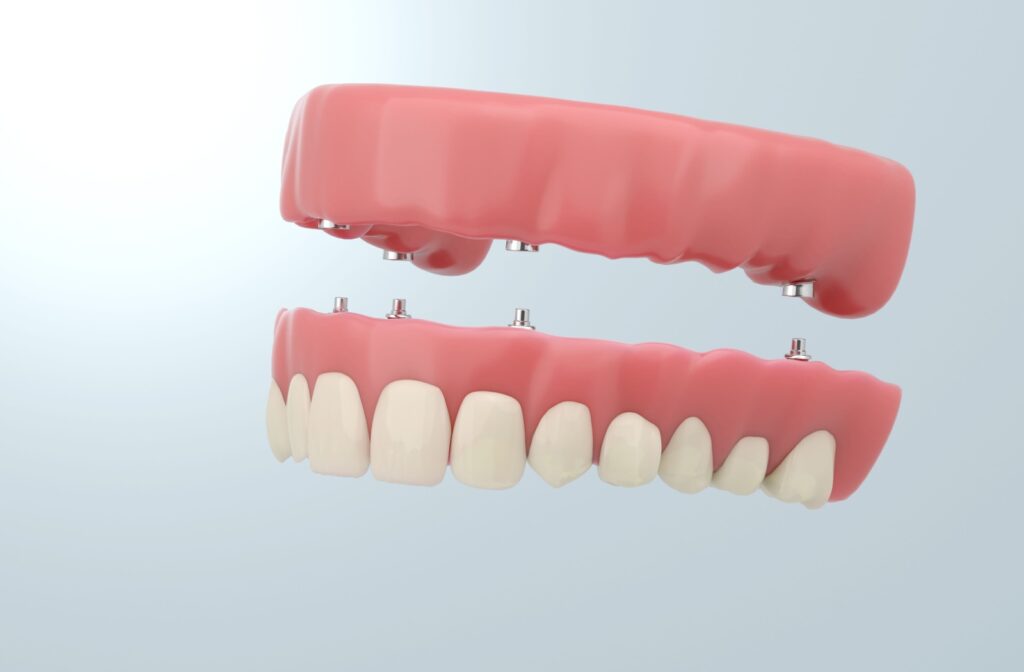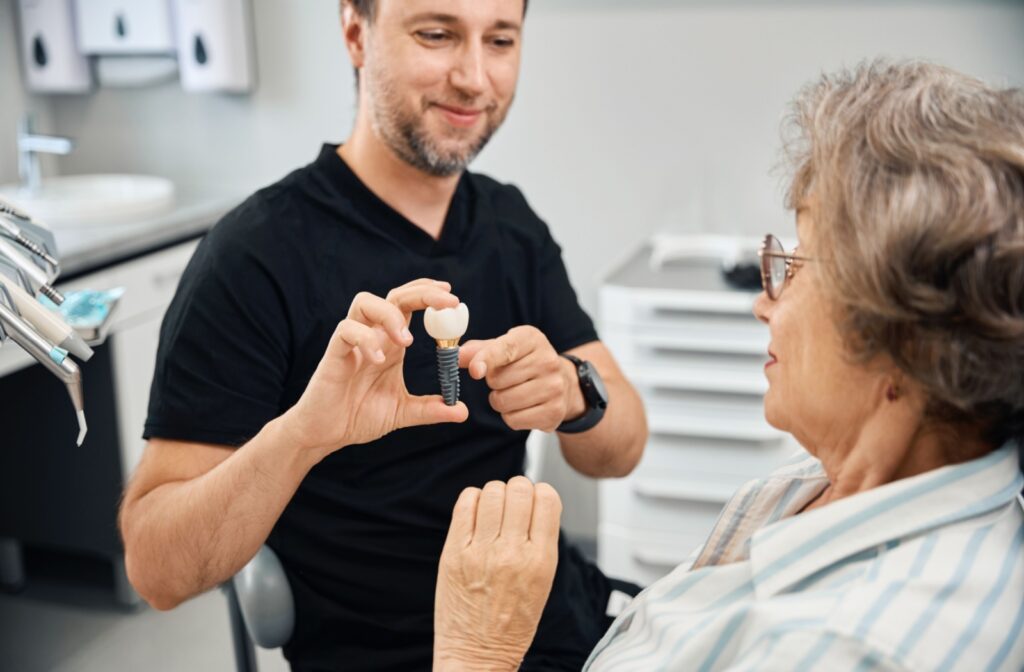Losing all of your teeth can change how you eat, speak, and feel about your smile. You might even be worried about whether a permanent solution is possible. Fortunately, modern dentistry has several options for missing teeth that can help you regain the function and look of your smile.
Yes, you can get dental implants, even if you have no natural teeth left. This process involves using a series of small posts to anchor a full set of new, artificial teeth.
A Modern Solution For a Complete Smile
Losing your teeth doesn’t mean you have to lose your smile for good. For people with no remaining teeth, dental implants offer an option for restoring their smile. Let’s explore how this process works and what your options are.
What Are Dental Implants?
Think of a dental implant as a replacement for the root of a tooth. It’s a small, strong post that a dentist inserts into your jawbone. Once it’s in place, it can support a single replacement tooth, a bridge, or a full denture.
This allows your replacement teeth to feel, look, and function like natural teeth.
How Implants Preserve Your Jawbone
When you lose teeth, your jawbone may start to shrink because it’s no longer being stimulated. Implants integrate with the bone, mimicking your natural tooth roots. This simple action helps maintain your facial structure over time.
Full Mouth Restoration Options & What to Expect
There are several options available for restoring your smile. The choice often depends on your health, lifestyle, and goals. A consultation with your dentist can help determine the right path for you.
Implant-Retained Dentures
This option combines the stability of implants with the convenience of a removable denture. After your implants are placed, a custom denture is snapped securely onto them. This denture won’t slip or shift while you talk or eat, and you can take it out for easy cleaning. It’s an excellent choice for patients who value stability but prefer the ease of removing their teeth for hygiene.
Full Arch Fixed Bridges
For a more permanent feeling, a full arch of teeth can be attached to four or more implants. This set of teeth—often called a fixed bridge—is not removable and functions very much like your natural teeth.
You can brush and care for them just as you normally would. Patients who want the highest level of chewing power and don’t want to remove their teeth often choose this solution.

The Dental Implant Process from Start to Finish
The journey towards a renewed smile has a few different steps. From your first visit to the final placement of your new teeth, our team is here to support you. The process is straightforward and well-planned.
- Your Initial Consultation: Your dentist will review your oral health, take images of your jawbone, and discuss which implant option fits your needs.
- Implant Placement: The small titanium posts are gently placed into your jawbone during a simple procedure.
- A Period of Healing: Over the next few months, the implants will bond with your jawbone in a natural process. You will have a temporary set of teeth during this time, so you never have to go without a smile.
- Attach Your New Teeth: Once the implants are secure, your custom-made teeth—either a fixed bridge or a removable denture—are attached to the posts.
What If You Have Bone Loss?
It’s common to experience some jawbone loss after teeth have been missing for a while. However, this doesn’t automatically mean you can’t have implants. There are options to help prepare your jaw for a successful procedure.
Bone Graft Procedures
A bone graft is a procedure that can add volume and density back to your jaw. This creates a solid foundation for dental implants, making it possible for you to receive them even after years of bone loss.
Who Is a Good Candidate for Dental Implants?
Many people are good candidates for dental implants, but a few factors contribute to a successful outcome. Your dentist can give you a personal evaluation. Health and habits are often more important than age.
General Health & Habits
Good candidates for dental implants often share these characteristics:
- Good overall health
- Gum tissues free of periodontal disease
- Enough jawbone to support the implants (or the patient is open to a bone graft)
- A commitment to good oral hygiene
Age & Dental Implants
There is no upper age limit for dental implants. General health is a much more important factor. Many people in their 70s, 80s, and beyond have successfully received dental implants and enjoy a better quality of life as a result.
Start with a Consultation at Wildwood Cosmetic & Family Dentistry
The first step toward a renewed smile is a simple conversation. A consultation with a dentist in Toledo or Sylvania can help you explore your options and create a plan tailored to you.
At Wildwood Family & Cosmetic Dentistry, we’re ready to answer your questions about implant-retained dentures, fixed bridges, and what you can expect from the process. If you’re ready to rediscover the function and beauty of a full smile, schedule a consultation with us today.




